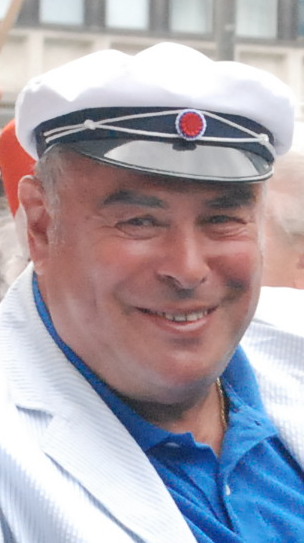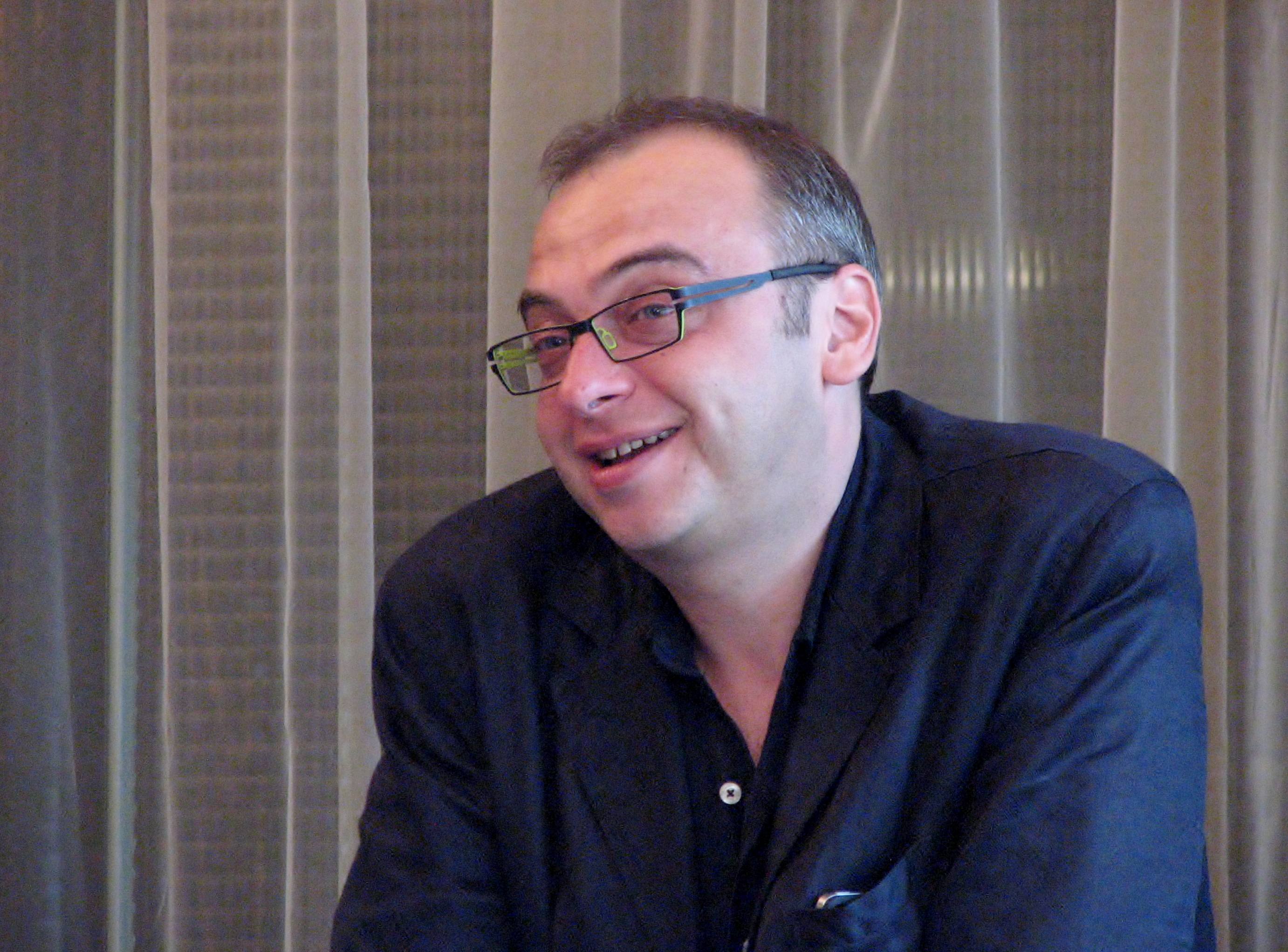|
Birgitta Festival
Birgitta Festival ( et, Birgitta festival) is an Estonian musical theatre festival which every year takes place in Pirita convent, Tallinn. The festival is the only one of its kind in the Baltic states. The festival is organised by Tallinn Philharmonics. First festival took place in 2005 and it was initiated by Eri Klas together with Tallinn City Government. Since 2020 festival's artistic director is Dmitry Bertman Dmitry Alexandrovitch Bertman (Russian: Дмитрий Александрович Бертман; born 31 October 1967) is a Russian theatre and opera director and the founder and artistic director of Helikon Opera in Moscow.Sleeman, Elizabeth (ed .... Festival's number of visitors is about 8000. References External links * {{Official website Culture in Tallinn Classical music festivals in Estonia ... [...More Info...] [...Related Items...] OR: [Wikipedia] [Google] [Baidu] |
Estonia
Estonia, formally the Republic of Estonia, is a country by the Baltic Sea in Northern Europe. It is bordered to the north by the Gulf of Finland across from Finland, to the west by the sea across from Sweden, to the south by Latvia, and to the east by Lake Peipus and Russia. The territory of Estonia consists of the mainland, the larger islands of Saaremaa and Hiiumaa, and over 2,200 other islands and islets on the eastern coast of the Baltic Sea, covering a total area of . The capital city Tallinn and Tartu are the two largest urban areas of the country. The Estonian language is the autochthonous and the official language of Estonia; it is the first language of the majority of its population, as well as the world's second most spoken Finnic language. The land of what is now modern Estonia has been inhabited by '' Homo sapiens'' since at least 9,000 BC. The medieval indigenous population of Estonia was one of the last " pagan" civilisations in Europe to adopt Ch ... [...More Info...] [...Related Items...] OR: [Wikipedia] [Google] [Baidu] |
Musical Theatre
Musical theatre is a form of theatrical performance that combines songs, spoken dialogue, acting and dance. The story and emotional content of a musical – humor, pathos, love, anger – are communicated through words, music, movement and technical aspects of the entertainment as an integrated whole. Although musical theatre overlaps with other theatrical forms like opera and dance, it may be distinguished by the equal importance given to the music as compared with the dialogue, movement and other elements. Since the early 20th century, musical theatre stage works have generally been called, simply, musicals. Although music has been a part of dramatic presentations since ancient times, modern Western musical theatre emerged during the 19th century, with many structural elements established by the works of Gilbert and Sullivan in Britain and those of Harrigan and Hart in America. These were followed by the numerous Edwardian musical comedies and the musical theatre w ... [...More Info...] [...Related Items...] OR: [Wikipedia] [Google] [Baidu] |
Pirita Convent
Pirita Convent ( et, Pirita klooster) was a monastery for both monks and nuns dedicated to St. Brigitta, located in the district of Pirita in Tallinn, Estonia. It functioned from 1407 to 1575. It was the largest convent in Livonia, and one of the largest in Northern Europe. History The idea of founding the monastery dates to merchants (H. Huxer, G. Kruse, H. Swalbart) of Tallinn of around 1400. In 1407, two monks from Vadstena Abbey arrived in Tallinn to counsel the merchants. The first permit to break dolomite to gather building material for building the complex was acquired in 1417. The convent was constructed under the supervision of the architect Heinrich Swalbart. The main church of the monastery was consecrated on 15 August 1436 by the Bishop of Tallinn Heinrich II. Several of the merchants who had originally proposed the monastery later became its monks. During its heyday, Pirita Convent became the largest Catholic monastery in Livonia. The decline of the convent ... [...More Info...] [...Related Items...] OR: [Wikipedia] [Google] [Baidu] |
Tallinn
Tallinn () is the most populous and capital city of Estonia. Situated on a bay in north Estonia, on the shore of the Gulf of Finland of the Baltic Sea, Tallinn has a population of 437,811 (as of 2022) and administratively lies in the Harju ''maakond'' (county). Tallinn is the main financial, industrial, and cultural centre of Estonia. It is located northwest of the country's second largest city Tartu, however only south of Helsinki, Finland, also west of Saint Petersburg, Russia, north of Riga, Latvia, and east of Stockholm, Sweden. From the 13th century until the first half of the 20th century, Tallinn was known in most of the world by variants of its other historical name Reval. Tallinn received Lübeck city rights in 1248,, however the earliest evidence of human population in the area dates back nearly 5,000 years. The medieval indigenous population of what is now Tallinn and northern Estonia was one of the last " pagan" civilisations in Europe to adopt Christianit ... [...More Info...] [...Related Items...] OR: [Wikipedia] [Google] [Baidu] |
Baltic States
The Baltic states, et, Balti riigid or the Baltic countries is a geopolitical term, which currently is used to group three countries: Estonia, Latvia, and Lithuania. All three countries are members of NATO, the European Union, the Eurozone, and the OECD. The three sovereign states on the eastern coast of the Baltic Sea are sometimes referred to as the "Baltic nations", less often and in historical circumstances also as the "Baltic republics", the "Baltic lands", or simply the Baltics. All three Baltic countries are classified as high-income economies by the World Bank and maintain a very high Human Development Index. The three governments engage in intergovernmental and parliamentary cooperation. There is also frequent cooperation in foreign and security policy, defence, energy, and transportation. The term "Baltic states" ("countries", "nations", or similar) cannot be used unambiguously in the context of cultural areas, national identity, or language. While the majority ... [...More Info...] [...Related Items...] OR: [Wikipedia] [Google] [Baidu] |
Eri Klas
Eri Klas (7 June 1939 – 26 February 2016) was an Estonian conductor. Klas was born into a Jewish family in Tallinn. His mother was pianist Anna Klas. His father, Eduard Klas, was killed in 1941, during the Holocaust.''Eesti Entsüklopeedia'', vol. 14, p. 167. (Tallinn, 2000.) Klas mainly worked in the Nordic scene, but might be best remembered for his work leading the now defunct Netherlands Radio Symphony Orchestra. From 1999 to 2001 Klas was music advisor to the Israel Sinfonietta Beersheba, Israel. He premiered Alfred Schnittke's 1st Cello Concerto (Munich Philharmonic, 1986) and Peer Gynt ballet ( Hamburg State Opera, 1989), and worked on the diffusion of the Estonian symphonic repertory. Klas was also active as a pedagogue, holding professorships at the Sibelius Academy (1993–97) and the Estonian Academy of Music and Theatre (1997 until his death), where he received an honorary doctorate. Klas was decorated with the Order of the Lion of Finland (1992, on the occasi ... [...More Info...] [...Related Items...] OR: [Wikipedia] [Google] [Baidu] |
Tallinn City Government
Tallinn City Government ( et, Tallinna linnavalitsus) is the executive body, which conducts the work of all institutions (except City Council Office) and subinstitutions of Tallinn, Estonia. The body's building is located at Freedom Square. The body has eight members: mayor and seven deputy mayors. Current (2024) mayor is Jevgeni Ossinovski. The work of the body takes place as session. Regular sessions takeks places on Wednesdays. Before WWII, the body used Tallinn Town Hall The Tallinn Town Hall ( et, Tallinna raekoda) is a building in the ''Vanalinn'' ("Old town") of Tallinn (Reval), Estonia, next to the Town Hall Square. The building is located in the south side of the medieval market square and is long. The we .... References External links * {{Authority control Tallinn Local government in Estonia ... [...More Info...] [...Related Items...] OR: [Wikipedia] [Google] [Baidu] |
Dmitry Bertman
Dmitry Alexandrovitch Bertman (Russian: Дмитрий Александрович Бертман; born 31 October 1967) is a Russian theatre and opera director and the founder and artistic director of Helikon Opera in Moscow.Sleeman, Elizabeth (ed.)"Bertman, Dmitry Alexandrovitch" ''The International Who's Who 2004''. Routledge, (2003) p. 156. Early years Bertman was born in Moscow, the son of Alexander Bertman and Ludmila Zhumaeva. He graduated from Russian Academy of Theatre Arts where he studied under Georgy Ansimov. Back in his student years he staged a number of opera, musical and dramatic performances at first in his Studio Theater together with Jacob Rosenberg and later in professional theaters in Moscow, Tver, Odessa and Syktyvkar. In 1990 Bertman founded Helikon Opera and remains its artistic director. Career In 1990 Dmitry Bertman established Helikon Opera theatre in Moscow. The theatre was included to the state theatres in 1993 and became one of the biggest opera hous ... [...More Info...] [...Related Items...] OR: [Wikipedia] [Google] [Baidu] |
Culture In Tallinn
Culture () is an umbrella term which encompasses the social behavior, institutions, and norms found in human societies, as well as the knowledge, beliefs, arts, laws, customs, capabilities, and habits of the individuals in these groups.Tylor, Edward. (1871). Primitive Culture. Vol 1. New York: J.P. Putnam's Son Culture is often originated from or attributed to a specific region or location. Humans acquire culture through the learning processes of enculturation and socialization, which is shown by the diversity of cultures across societies. A cultural norm codifies acceptable conduct in society; it serves as a guideline for behavior, dress, language, and demeanor in a situation, which serves as a template for expectations in a social group. Accepting only a monoculture in a social group can bear risks, just as a single species can wither in the face of environmental change, for lack of functional responses to the change. Thus in military culture, valor is counted a typica ... [...More Info...] [...Related Items...] OR: [Wikipedia] [Google] [Baidu] |


.jpg)




